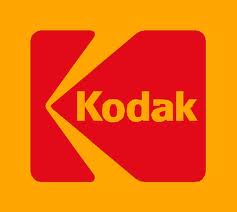We here at Mobile Sports Report often talk about the issues related to patents, and all of the lawsuits that have resulted in the current turf wars. The reason is that it can and is having an impact on what types of technology your mobile devices can use and their cost.
The net result of this is the enhance the value of companies, and even ones that are fading away find that in their dusty vaults they might have some that are worth a mint, one such case being Eastman Kodak Co., which recently declared bankruptcy.
Now two groups are bidding for its 1,100 patents, and to the surprise of no one, they have members that have been some of the most aggressive in defending their patents against each other. In one corner we have Apple along with Microsoft, an earlier ally in patent purchasing, and Intellectual Ventures Management LLC, a patent aggregation firm.
In the other corner is Google, patent aggregation firm RPX Corp and three of Google’s Android smartphone hardware manufacturers, Samsung, HTC and LG Electronics according to a piece in the Wall Street Journal. It is reported that Kodak is seeking $2.6 bn for the patents.
While the Apple and Microsoft team paid $4.5 bn for Nortel patents some time ago, it is questionable if Kodak’s will go for any such sky high figure due to some disputes over the validity of some of its patents, yet the importance of owning patents seems to have never been more important in high tech.
The Apple vs Samsung lawsuit that opened in San Jose yesterday is an example of how potentially important the patents are as Apple is claiming billons in damages from Samsung infringing on its patents. There were dozens of articles on the start of the case yesterday and at least one paper was live blogging the case, starting with jury selection.
But there are plenty of other examples, the Oracle vs Google case that was at one time expected to bring billions to Oracle and Motorola winning some against Microsoft and potentially banning the Xbox and asking for sizable compensation is another case in point. All of these costs will get passed on to the consumers at some point.











